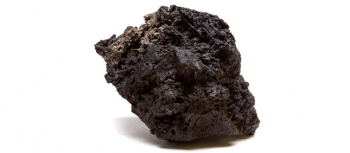Shilajit
Other names : silajit, salajeet, Shilajatu
Shilajit is a black gummy exudation from the rocks of mountains in hot sumumijo, momia
is a thick, sticky tar-like substance with a colour ranging from white to dark brown (the latter is more common), sometimes found in Caucasus mountains, Altai Mountains, and Tibet mountains and mountains of gilgit baltistan Pakistan. Shilajit is a blackish-brown exudation, of variable consistency, obtained from steep rocks of different formations found in the Himalayas
It is used in Ayurveda, the traditional Indian system of medicine. The composition of shilajit has been investigated numerous times in both India and the former USSR, and depends on the location where it is found. It has been reported to contain at least 85 minerals in ionic form, as well as triterpenes, humic acid and fulvic acid. A similar substance from the Caucasus Mountains, and the Altai Mountains is called mumijo (Russian).
Special Precautions of Shilajit
- Shilajit increases the production of uric acid in the body and can thus worsen gout.
- most shilajit products are imported from India and not assessed for content or purity before being sold. This issue was highlighted in 2005, when Health Canada blocked the sale of shilajit capsules produced by Dabur India Ltd. because the capsules contained unhealthy amounts of heavy metals. In a July 20, 2005, press release, the Canadian health agency warned consumers that arsenic, lead and mercury are often mixed with herbs in ayurvedic medicines because the heavy metals are believed to have therapeutic properties.
- Shilajit has a high concentration of iron. Taking shilajit with other supplements such as multivitamins that contain iron could lead to an overdose, whose symptoms include bloody vomit, diarrhea, loss of consciousness, loss of skin color and shock.
- The herb may lower blood pressure in some. Individuals with any type of suspected or diagnosed heart conditions should talk to their doctor about taking shilajit to prevent a drop in blood pressure that may cause fainting, dizziness or falls, suggests Dr. Michael Hartman of the Sabinsa Corporation in Bangalore, India.
- Shilajit may also adversely affect diabetics for the same reason. A diabetic with low blood sugar levels may feel faint, weak, or unbalanced due to the effects of shilajit in the system.
The benefits and uses of Shilajit are
Mumijo/shilajit has been the subject of scientific research in Russia and India since the early 1950s. Claims were investigated with scientific methods. So far the following claims have been confirmed in laboratory conditions, in general by using mouse models:
- Anti-inflammatory (e.g., arthritis, rheumatism)
- Dispels pain
- Anti-ulcer
- Anti-anxiety, anti-stress
- Smart drug (nootropic effect
- Anti-aging (both mental and physical)
- Source of Fulvic Acid.
- Chronic Fatigue Syndrome : Shilajit may aid in the treatment of chronic fatigue syndrome, according to a preliminary study published in the Journal of Ethnopharmacology in 2012. In tests on rats, scientists found that treatment with shilajit may influence several processes involved in the body's production of energy. In addition, treatment with shilajit appeared to alleviate anxiety and protect against oxidative stress.
- Alzheimer's Disease : Fulvic acid is responsable for its virility-boosting powers. It's also what helps protect your brain from Alzheimer's. Plaque buildup and tangled proteins in your brain cause the cognitive decline that comes with Alzheimer's. Fulvic acid prevents tau proteins in your brain from tangling. It may also untangle any existing tau proteins. But that's not the only way it protects your brain. Shilajit fights oxidative stress that leads to aging and brain disease. It mimics the antioxidant effects of glutathione. Not only that, but it actually helps your body produce more of the glutathione itself. This is key as you age. Each year, your body makes less and less glutathione. It may be the most important antioxidant you can get. Not having enough can lead to accelerated aging and even Alzheimer's.
- Heart Health : Shilajit has an anti-inflammatory effect that may protect your heart as well. One study found that it lowers your LDL cholesterol by over 20 percent in 45 days.
In the former USSR, medical preparations based on mumijo/shilajit are still being sold, further developed and investigated. In India, dietary supplements based on shilajit are also very popular, mainly due to its assumed effect on male impotence and premature ejaculation. One of shilajit’s unique properties is its high fulvic acid content. Fulvic acid occurs naturally in healthy soils and has the outstanding ability to help our bodies better absorb other nutrients into our muscles, tissues, and bones. For this reason, Ayurvedic healers often use shilajit to increase the potency of other herbs.
